News
Give Account For Missing N100bn Dirty Notes, Others, SERAP Tells CBN Gov
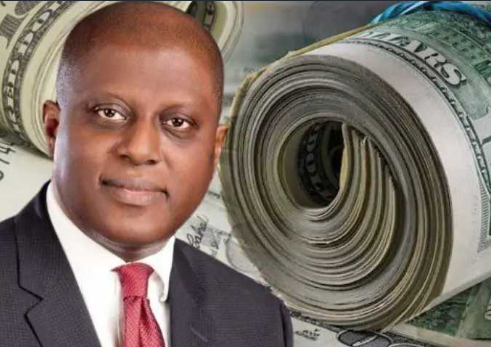
By Kayode Sanni-Arewa
The Socio-Economic Rights and Accountability Project has urged the Governor of the Central Bank of Nigeria, Mr Olayemi Cardoso, “to account for and explain the whereabouts of the over N100 billion ‘dirty and bad notes’ and ‘other large sum of cash awaiting examination’ which are kept in various branches of the CBN.”
In a letter dated June 29, 2024, and signed by its Deputy Director, Kolawole Oluwadare, SERAP said the allegations are documented in the latest annual report recently published by the Auditor-General of the Federation.
The organisation said these allegations by the Auditor-General suggest grave violations of public trust, the provisions of the Nigerian Constitution, the CBN Act, and national and international anti-corruption obligations.
SERAP also asked Cardoso to “explain the whereabouts of the N7.2 billion budgeted for the construction of the CBN Dutse branch in 2010 and the N4.8 billion budgeted for the renovation of the CBN Abeokuta branch in 2009, and to publish the names of the contractors who collected the money but failed to complete the projects.”
SERAP urged the CBN boss “to explain the whereabouts of the allegedly missing outstanding loan of N1.2 billion granted to the Enugu State Government in 2015 and the outstanding loan of N1.9 billion granted to the Anambra State Government between 2015 and 2016 and to fully recover and remit the public funds to the treasury.”
It also asked him “to refer these grave violations of the Nigerian Constitution 1999 (as amended), the CBN Act and the country’s national and international anti-corruption obligations to appropriate anti-corruption agencies for investigation and prosecution, as appropriate, and the recovery of the public funds.”
The letter read in part, “We would be grateful if the recommended measures are taken within seven days of the receipt and/or publication of this letter. If we have not heard from you by then, SERAP shall take all appropriate legal actions to compel you and the CBN to comply with our request in the public interest.
“Explaining the whereabouts of the missing public funds, publishing the names of those suspected to be responsible and ensuring that they are brought to justice and the full recovery of any missing public funds would serve the public interest and end the impunity of perpetrators.
“According to the recently published 2020 audited report by the Auditor General of the Federation (AGF), the Central Bank of Nigeria (CBN) has since 2017 been keeping over N100 billion ‘dirty and bad notes’, and other large sums of cash awaiting examination in various branches of the CBN.
“The Auditor-General fears that the ‘dirty and bad notes’ initially planned to be destroyed may have been ‘diverted and re-injected into the economy.’
“The CBN in August 2010 also reportedly budgeted N7.2 billion [N7,286,500,476.76] for the construction of the Dutse branch building. The Dutse branch was due to be completed in November 2012 but the contractors have failed to complete the project.
“The Auditor-General is concerned that the project may have been ‘awarded to an incompetent contractor,’ and wants the ‘job completed without further delay.’
‘The CBN in 2009 reportedly budgeted N4.8 billion [N4,812,608,028.10] for the renovation of the CBN Abeokuta branch. The Abeokuta branch was due to be completed in 2012 but the contractors have failed to complete the project.
There is no significant renovation work on the site, several years after the proposed completion date. The Auditor-General is concerned that the project may have been ‘awarded to an incompetent contractor,’ and wants the ‘job completed without further delay.’”
SERAP said these violations also reflect a “failure of CBN accountability more generally and are directly linked to the institution’s persistent failure to comply with its Act and to uphold the principles of transparency and accountability.”
It added, “The CBN also reportedly failed to account for the missing outstanding loan of N1.2 billion granted to the Enugu State Government in 2015 and the outstanding loan of N1.9 billion granted to the Anambra State Government between 2015 and 2016. The Auditor-General fears the public funds may have been diverted. He wants the money fully recovered and remitted to the treasury.
“Paragraph 708 of the Financial Regulations 2009 provides that, ‘on no account should payment be made for services not yet performed or for goods not yet supplied.’
Section 35(2) of the Public Procurement Act 2007 provides that, ‘once a mobilization fee has been paid to any supplier or contractor, no further payment shall be made to the supplier or contractor without an interim performance certificate
Section 16(6) of the Public Procurement Act states that ‘all bidders shall possess the necessary professional and technical qualifications to carry out particular procurements; the financial capacity and adequate personnel to perform the obligations of the procurement contracts.’”
SERAP asserted that these alleged violations have seriously undermined the ability of the CBN to effectively discharge its statutory functions and the public trust and confidence in the bank.
According to the organisation, the apex bank ought to be committed to transparency and accountability in its operations.
It added, “SERAP notes that Section 15(5) of the Nigerian Constitution requires public institutions to abolish all corrupt practices and abuse of power.” Section 13 of the Constitution imposes a clear responsibility on the CBN to conform to, observe and apply the provisions of Chapter 2 of the Constitution.
Paragraph 3112(ii) of the Financial Regulations 2009 provides that, “Where a public officer fails to account for government revenue, such officer shall be surcharged for the full amount involved and such officer shall be handed over to either the Economic and Financial Crimes Commission (EFCC) or the Independent Corrupt Practices and Other Related Offences Commission (ICPC).
“Nigeria has made legally binding commitments under the UN Convention against Corruption to ensure accountability in the management of public resources. Articles 5 and 9 of the UN Convention against Corruption also impose legal obligations on the CBN to ensure proper management of public affairs and public funds.
“Nigerians have the right to know the whereabouts of the public funds. Taking the recommended measures would advance the right of Nigerians to restitution, compensation and guarantee of non-repetition.
“The Nigerian Constitution, Freedom of Information Act, and the country’s anti-corruption and human rights obligations rest on the principle that citizens should have access to information regarding their public institutions’ activities.”
News
Belgian Ambassador Commits to Stronger Nigeria Ties
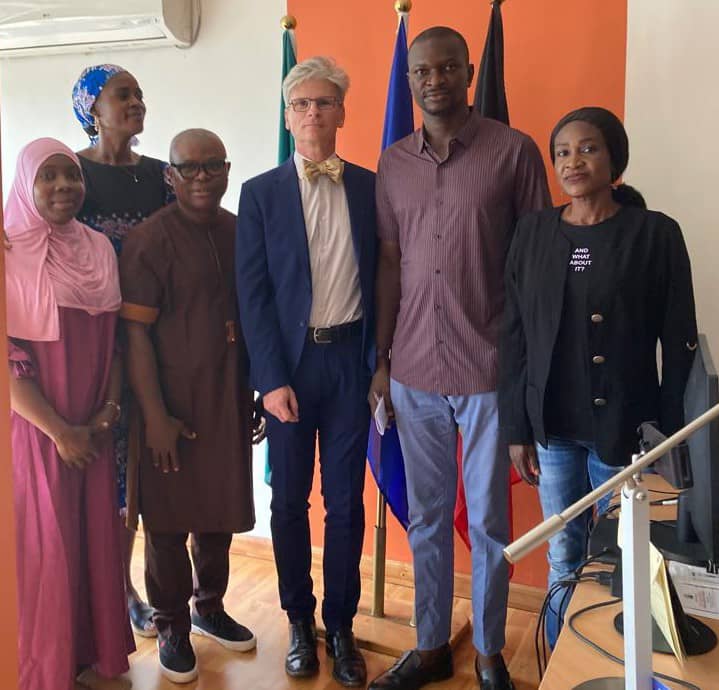
By Gloria Ikibah
The Embassy of Belgium in Nigeria has reaffirmed its commitment to deepening diplomatic relations with the country.
Belgian Ambassador Pieter Leenknegt stated this during a courtesy visit by the Diplomatic Correspondents’ Association of Nigeria (DICAN), led by its Chairman, Frederick Idehai, at the embassy in Abuja.Discussions centered on fostering collaboration, particularly in capacity-building initiatives for DICAN members and other areas of mutual benefit.
Addressing the delegation, Ambassador Leenknegt also commented on the ongoing discord between Senate President Godswill Akpabio and Kogi Senator Natasha Akpoti-Uduaghan, describing it as an unnecessary distraction, urging key stakeholders to promote dialogue and reconciliation in the interest of national stability.
Speaking further, Ambassador Leenknegt has some reservation over what he described as “sloppy journalism” among Nigerian Journalists which needs to be corrected.
This unpalatable adjective, according to the envoy, stems from an experience he had when he visited the Minister of the Federal Capital Territory, Nyesom Wike.
“It was a fruitful meeting I had with the FCT Minister with key areas of interest well highlighted.
“However, the next day I was surprised to find in over 13 print and online media that the meeting the previous day, was between the outgone Ambassador of the Embassy and with his photograph attached.
“This was a meeting I personally attended so how could they attribute it to my predecessor and attached his photo?
“That’s terrible and what it meant was that one person goofed and others copied from the original source without due verification,” he lamented.
Earlier in his remarks, DICAN Chairman, Comrade Idehai Frederick emphasised that the partnership will enhance cultural exchange between Nigeria and Belgium.
He said the role of media in promoting democracy, good governance and bilateral relations cannot be overemphasized.
“We will provide your country with the needed support in the area of quality and credible reportage for the sake of humanity,” Idehai said.
The visit also touched on the upcoming DICAN Diplomatic/Security International Conference, scheduled for June 19, 2025, in Abuja to brainstorm on how to make the world a better and safer place.
“We want to enhance bilateral relations through our engagement and agenda setting.
“When governments across the nations of the world know that journalists are interested in monitoring their programmes, they wake up and address their challenges,” Idehai stated.
News
Reps Minority Caucus Condemns Killings in Edo State

By Gloria Ikibah
The Minority Caucus of the House of Representatives has strongly condemned the recent killings of about 16 Nigerians, mainly northerners, by an armed group in Edo State.
In a statement signed by Minority Leader, Rep. Kingsley Chinda, Minority Whip, Rep. Ali Isa JC, Deputy Minority Leader Rep. Aliyu Madaki, and other leaders of the caucus on Saturday, the caucus described the attack as “barbaric” and “reprehensible,” warning that if such violence is not curbed, it could threaten national peace and unity.
“We find such brutal killings of innocent Nigerians in any part of the country by lawless mobs very reprehensible, and if allowed to fester without being put in check by responsible organs of the federal government, such actions could threaten the peace and unity of the country,” the statement read.
The lawmakers urged Nigerians to avoid taking the law into their own hands and instead seek the intervention of law enforcement agencies when faced with security concerns.
The Minority Caucus called for swift action, and urged President Bola Ahmed Tinubu to direct security agencies to investigate the incident and ensure those responsible are brought to justice.
“We implore all Nigerians to never resort to such jungle attacks on their fellow citizens but to always implore the services of lawful authorities whenever they notice any issue of concern.
“In the face of this grave incident, which is already setting emotions on edge in parts of the country, we hereby call on the President and Commander in Chief of the Armed Forces of the Federal Republic of Nigeria, His Excellency Senator Bola Ahmed Tinubu, GCFR, to direct the security agencies to investigate this matter and bring all those involved in the killings to book in order to prevent its recurrence. And also adequate compensation should be paid to the affected families,” they demanded.
The caucus also appealed to Nigerians to remain calm and allow the government to handle the matter.
“We also call on all Nigerians to remain calm, peaceful, and law-abiding and allow the federal and state governments to get to the root of this matter in the interest of justice,” the caucus stated.
The lawmakers extended their condolences to the families of the victims, and assured Nigerians of their commitment to ensuring justice is served.
“We express our sincere sympathies and condolences to the families of the victims even as we assure them and all Nigerians that we, the Minority Caucus of the House of Representatives, will remain eternally vigilant until justice is done on this matter,” the statement continued.
News
Police ‘rescue’ landlord, daughter from k!dnappers clutches in Lagos

By Kayode Sanni-Arewa
Suspected gunmen abducted a landlord and his daughter in the Ijede area of Ikorodu in Lagos.
In a statement on Sunday, Benjamin Hundeyin, the Lagos police spokesperson, said the kidnappers abducted the victims on Wednesday.
Hundeyin added that on Saturday, the command rescued the kidnapped victims unhurt and handed them over to their family members.
According to the police spokesperson, the command has launched a manhunt for the perpetrators.
“The police received information that some kidnappers invaded Ijede community and kidnapped two persons,” the statement reads.
“Upon receipt of the report, police operatives were mobilised to the scene where it was observed that the kidnappers forcefully gained entrance into the house of a 40-year-old man, killed the security dog and kidnapped him.
“The kidnappers equally forced their way into the nearby house and kidnapped the landlord’s 25-year-old daughter.
“With the collaborative efforts of both the police joint task force and other stakeholders, the kidnapped victims were rescued unhurt and handed over to their family members.
“The area is relatively calm and being closely monitored, and efforts are ongoing to apprehend the wanted suspects.”
-
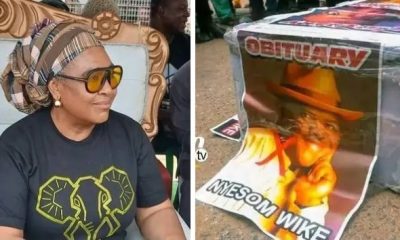
 News11 hours ago
News11 hours agoWike’s Aide reacts as photo appears online, points accusation finger at paid failed actress
-
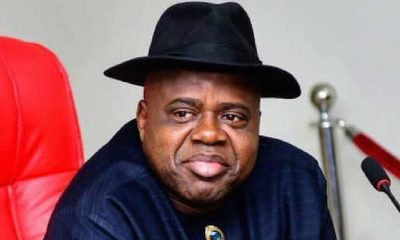
 News17 hours ago
News17 hours agoUpdated: WATCH moment Gov Diri’s Tech Adviser Kerry admits blowing up pipelines (Video)
-
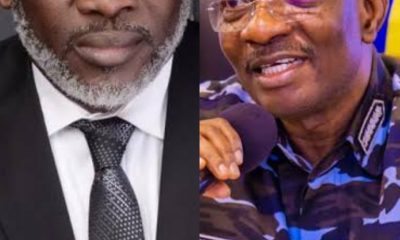
 News6 hours ago
News6 hours agoFormer HoR member, TeeJay Yusuf calls on IGP, Kogi govt, other agencies to curb rising insecurity in Okun-Yoruba
-
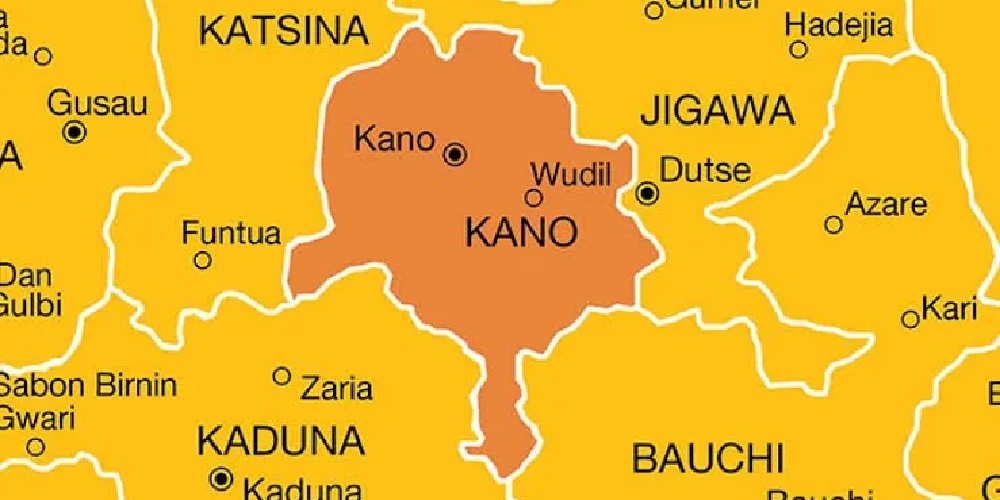
 News8 hours ago
News8 hours agoEdo Killings: Kano Govt Sends Fact-Finding Delegation, Demands Justice
-
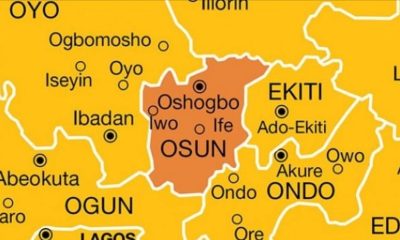
 News8 hours ago
News8 hours agoJust in: Popular Osun Monarch Joins Ancestors
-
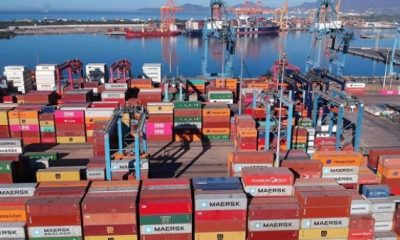
 News5 hours ago
News5 hours agoMali, Niger, Burkina Faso Impose 0.5% Levy On Goods From ECOWAS Nations
-
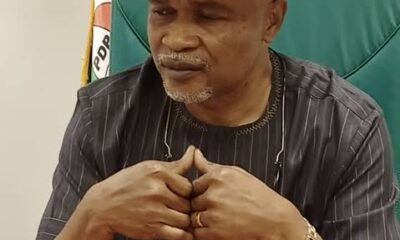
 News1 hour ago
News1 hour agoReps Minority Caucus Condemns Killings in Edo State
-
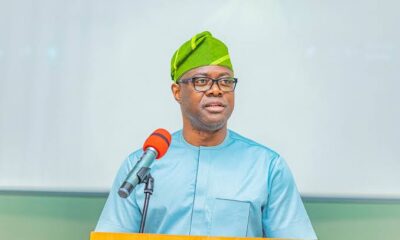
 News12 hours ago
News12 hours agoN24bn monthly salaries drive Oyo’s economic stability – Makinde assures





